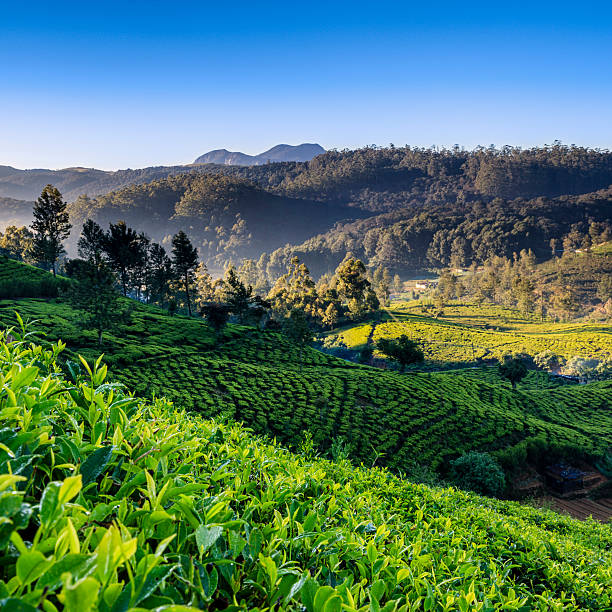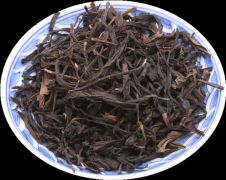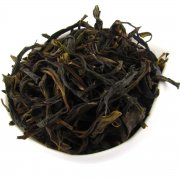Sri Lankan tea farmers run out of fertilizer stocks further worsen the decline in local demand for Ceylon black tea
Sri Lanka has been in a state of economic emergency declared by the government since September, rationing in a foreign exchange crisis that may require a rescue from the International Monetary Fund (IMF). President Gottabaya Rajapaksa (Gotabaya Rajapaksa) relies on the tea industry to help raise money to pay nearly $4 billion in bonds due in 2022.
Tea farmers are making brave efforts to meet these expectations. The total export volume in August was 25.5 million kg, an increase of 3.5 million kg over August 2020. According to the Sri Lankan Tea exporters Association, cumulative production as of August was 212 million kg, an increase of 32 million kg over last year.
Over the past few years, export prices have been close to US $5 per kilogram, and Sri Lanka has earned US $1.2 billion a year. In August, the average FOB price was 927 Sri Lankan rupees (US $4.64) per kilogram. Nevertheless, the average level from January to August was Rs858 per kilogram, below the average of Rs822 from January to December 2019 (the record average at that time).
Sri Lanka remains the third largest tea exporter by value, but according to statistics published by the International Trade Center (International Trade Center) on the world's main export websites, Sri Lanka's important foreign exchange value fell 18.3 per cent to US $712.3 million in 2020. The Sri Lankan rupee fell 9 per cent against the dollar to mitigate the impact of a fall in its total tea exports to 10 per cent, but that is little comfort to foreign debtors.
By contrast, Kenya earned $1.1 billion in 2020, down only 0.4 per cent from before the 2018-2019 pandemic. China exported $2 billion worth of tea, accounting for 28.7 per cent of total tea exports. Kenya exports almost all black tea, so it has gained market share at the expense of Sri Lanka and now accounts for 15.6% of the world's total tea value. India's tea exports, at $624.6 million, rank fourth in the world, falling 17.7 per cent in 2020.

Local demand declines
Tea tourism is very popular in Sri Lanka and sales in tourist destinations such as Kandi are also considerable. In addition, the restaurants and cafes on the island that serve tourists without exception serve tea, reflecting the country's pride in the industry. Inbound flights have declined for a year since the Easter Sunday bombing in April 2019, and the tourism industry almost disappeared in 2020 due to the closure of the COVID-19 epidemic.
New cases in the delta reached a seven-day peak of 6000 in August, but Sri Lanka fared better than India, where the death toll this spring was shocking. In September, the vaccination rate was close to 60%, and as winter approached, several international flights arrived every day. However, a recent Bloomberg report asked: "is this enough to make up for the 99.6 per cent decline in tourism revenue before the outbreak?" Obviously not. "
Sri Lanka briefly lifted the ban in August because food growers worried that the country's supply of synthetic fertiliser would run out in October. The entire agricultural sector is racing to harvest mulch crops for composting and import certified organic cow manure, but more organic materials are needed to supplement nitrogen. Since the ban was imposed in May, there has not been enough time to replace synthetic materials. Vegetable growers who have suffered reduced yields are unable to replenish their stocks, resulting in supply shortages. Rice growers are organizing protests because of a lack of urea fertilizer.
"Urea fertilizer will continue to be banned, but it is widely used in the $1.25 billion (1.69 billion rupee) tea industry-China's largest export-as well as the cultivation of staple rice," the Straits Times reported. "
Herman Gunaratne, a tea farmer and member of the presidential committee that guides the transition to organic farming, predicts that the sudden shift will have "catastrophic" consequences. Gunaratne, who was fired by the committee after publicly expressing his concerns, told AFP: "We are at risk of losing the international tea market."
Important Notice :
前街咖啡 FrontStreet Coffee has moved to new addredd:
FrontStreet Coffee Address: 315,Donghua East Road,GuangZhou
Tel:020 38364473
- Prev

What are the ten most popular flavors of Phoenix single fir? Which fragrance is the most expensive?
Fenghuang Dancong is the general term for oolong tea, a specialty of Chaozhou in China. Different types of single fir were isolated and cultured from fine individual plants of Phoenix narcissus. All kinds of single fir trees adopt the method of single fir harvesting and tea making. There are many kinds of single fir tea, each with its own characteristics. In fact, there are so many kinds of single fir tea that even local tea farmers cannot understand all of them. After several generations of tea industry development, single fir this variety has been
- Next

What are the types of Chaozhou Phoenix Dancong tea? What kind of fragrant single fir does the eight Immortals single fir belong to?
Phoenix single fir, belongs to oolong tea. Produced in dng Camellia District, Fenghuang Town, Chaozhou City, Guangdong Province. The area is close to the East China Sea, the climate is warm and Rain Water is abundant. Tea trees all grow in the mountains above 1000 meters above sea level. They are foggy all the year round, the air is moist, the temperature difference between day and night is large, the average annual temperature is above 22 ℃, the annual precipitation is about 1800 mm, the soil is fertile and rich in organic matter.
Related
- Beginners will see the "Coffee pull flower" guide!
- What is the difference between ice blog purified milk and ordinary milk coffee?
- Why is the Philippines the largest producer of crops in Liberia?
- For coffee extraction, should the fine powder be retained?
- How does extracted espresso fill pressed powder? How much strength does it take to press the powder?
- How to make jasmine cold extract coffee? Is the jasmine + latte good?
- Will this little toy really make the coffee taste better? How does Lily Drip affect coffee extraction?
- Will the action of slapping the filter cup also affect coffee extraction?
- What's the difference between powder-to-water ratio and powder-to-liquid ratio?
- What is the Ethiopian local species? What does it have to do with Heirloom native species?

